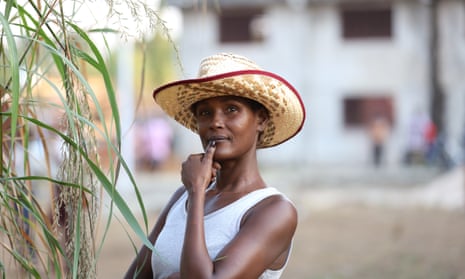It is down to sheer ignorance that the misogynistic practice of female genital mutilation still exists in the world. In the UK, for example, FGM has been banned since 1985, but the country’s first court conviction occurred only in February 2019. The truth is, FGM will continue as long as there is inequality between men and women. It is about power and oppression, and its only purpose is to subjugate the woman and her sexuality to the man. Anyone who says otherwise is lying.
The UN has a stated goal of eliminating FGM by 2030. Unfortunately, this is pure announcement policy. I worked as a UN special envoy from 1997 to 2003 and came to realise that the organisation is not doing what it should. That disappointed me and is why I started my own organisation, the Desert Flower Foundation. And, in my opinion, we are doing a better job than the UN.
When we began the foundation in 2002, few people knew about FGM. Today, the whole world knows about this crime. When we started, few African countries had a law against FGM; today, only four African countries do not have a law against it. A change in thinking is taking place among young people in Africa. From my conversations, especially with young mothers and fathers, I know that more and more are renouncing FGM. This makes me optimistic about ending the practice in my lifetime, which is my goal.
The Desert Flower Foundation builds schools in Africa, gives girls access to education and empowers women. All the girls in our sponsorship project, Save a Little Desert Flower, are not only protected from FGM and forced marriage, they also receive a school education. Countries with the highest illiteracy rates in Africa happen to be those with the greatest prevalence of FGM. Lack of education limits women, no matter where they are in the world. Only a strong, self-determined and economically independent woman will be confident enough to resist the pressures of a community.
Q&AFemale genital mutilation: what does it involve and what are its consequences?
Show
Female genital mutilation (FGM) is the removal of part or all of the external genitalia for nonmedical reasons, as defined by the World Health Organization.
There are different types of cutting: removal of the clitoris and/or its hood; removing the clitoris and the inner fold of the vulva (labia minora); and the narrowing of the vaginal opening by cutting and repositioning the labia minora through stitching. Also known as infibulation, this has the worst health consequences. The fourth type of cutting includes other forms of injury to the genitalia such as incising, scraping or cauterising.
Since traditional practitioners use razor blades or knives, with no anaesthesia, girls experience excruciating pain and are at risk of severe bleeding and infections which can lead to sepsis. Some do not survive.
For the girls, who are often married off soon after genital cutting, sex is traumatic and painful, and enjoying sex will always be difficult unless they have surgical reconstruction.
In pregnancy, delivery is often risky due to obstructed and prolonged labour. Women are at risk of developing obstetric fistula (an abnormal opening between a woman’s genital tract and her urinary tract or rectum) which can cause incontinence – leading to shame, stigma and rejection from their partners.
- Dr Mercy Korir is a medical doctor and health and science editor at the Kenyan media organisation Standard Group
Change can happen quickly when the right measures are taken. Two years ago, the foundation opened its first school in Sierra Leone for 400 children. Before we built the school, the entire community had to stop FGM. Our deal was: education instead of mutilation. At that time, many girls in the community were working in a local quarry. Today, they attend our school. Hearing the girls say, “Waris, I want to be a lawyer, a doctor or a teacher,” makes me happy – these are success stories.
The frightening thing is that FGM is also happening in Europe, where rates are rising rapidly. The UK and France have the highest figures. Politicians in Europe must take the FGM problem much more seriously.
I have a series of demands to help lawmakers tackle the scourge of FGM:
I demand that the authorities carry out regular health checks on all girls who are at risk of FGM.
I demand that health authorities report when they detect FGM in girls and women.
I demand education for all migrant women, obligatory educational work by asylum and social counsellors, as well as harsh penalties for those who take their daughters abroad for FGM.
I demand that the international community recognises FGM as grounds for asylum.
I’m often asked if I feel hatred towards my mother. Because she took me to this witch for circumcision when I was a little girl, because she held me down during the torture. No, I do not feel hatred. After many discussions and wild quarrels, my mother, contrary to all her former ideals, now thinks differently. Today she supports me in my fight against FGM. Probably my greatest victory.
Waris Dirie is a an award-winning anti-FGM campaigner and founder of the Desert Flower Foundation
Sign up for Her Stage to hear directly from incredible women in the developing world on the issues that matter to them, delivered to your inbox monthly:
